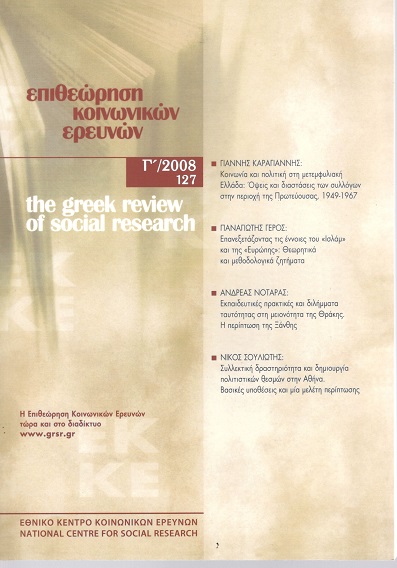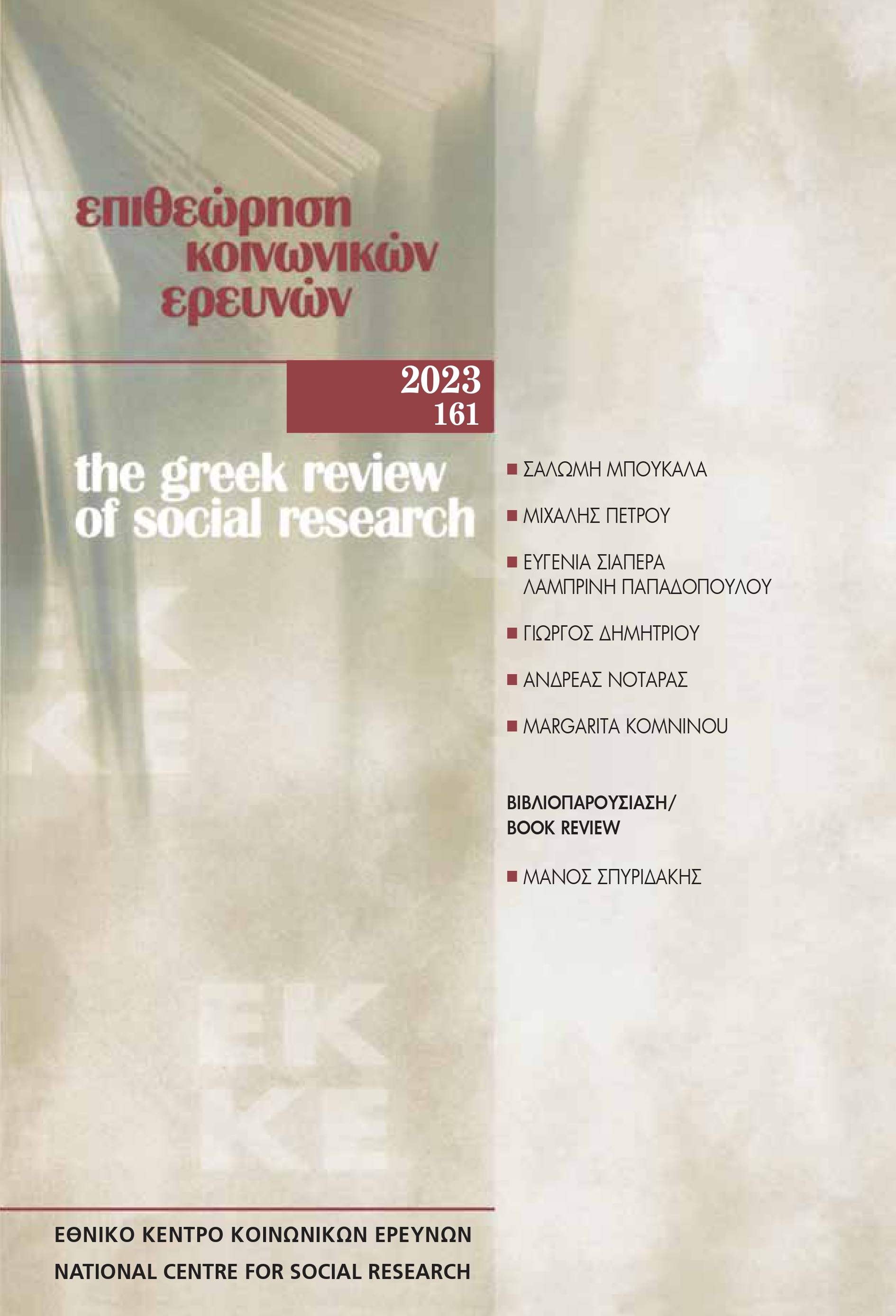Educational practices and identity dilemmas within the muslim minority of Thrace (Greece): the case of Xanthi
Abstract
This article examines the educational practices of the Muslim Minority in Thrace (Greece) in relation to subsequent identity dilemmas. The abrogation of restriction policies against the minority and the affirmative action taken by the Greek State in the mid-nineties have led to new, more diversified educational practices. Minority schools are no longer considered as the only obvious choice for parents. State Greek-language schools gain constantly in popularity among the minority, especially in the town of Xanthi. I here bring forward the qualitative and quantitative features of this evolution and analyze the main dilemma between social strategies of integration and the concern for the preservation and
reproduction of minority identity and its cultural content.
Article Details
- How to Cite
-
Νοταράς Α. (2016). Educational practices and identity dilemmas within the muslim minority of Thrace (Greece): the case of Xanthi. The Greek Review of Social Research, 127, 73–102. https://doi.org/10.12681/grsr.9878
- Issue
- 2008: 127 Γ'
- Section
- Articles

This work is licensed under a Creative Commons Attribution-NonCommercial 4.0 International License.
Authors who publish with this journal agree to the following terms:
- Authors retain copyright and grant the journal right of first publication with the work simultaneously licensed under a Creative Commons Attribution Non-Commercial License that allows others to share the work with an acknowledgement of the work's authorship and initial publication in this journal.
- Authors are able to enter into separate, additional contractual arrangements for the non-exclusive distribution of the journal's published version of the work (e.g. post it to an institutional repository or publish it in a book), with an acknowledgement of its initial publication in this journal.
- Authors are permitted and encouraged to post their work online (preferably in institutional repositories or on their website) prior to and during the submission process, as it can lead to productive exchanges, as well as earlier and greater citation of published work (See The Effect of Open Access).




